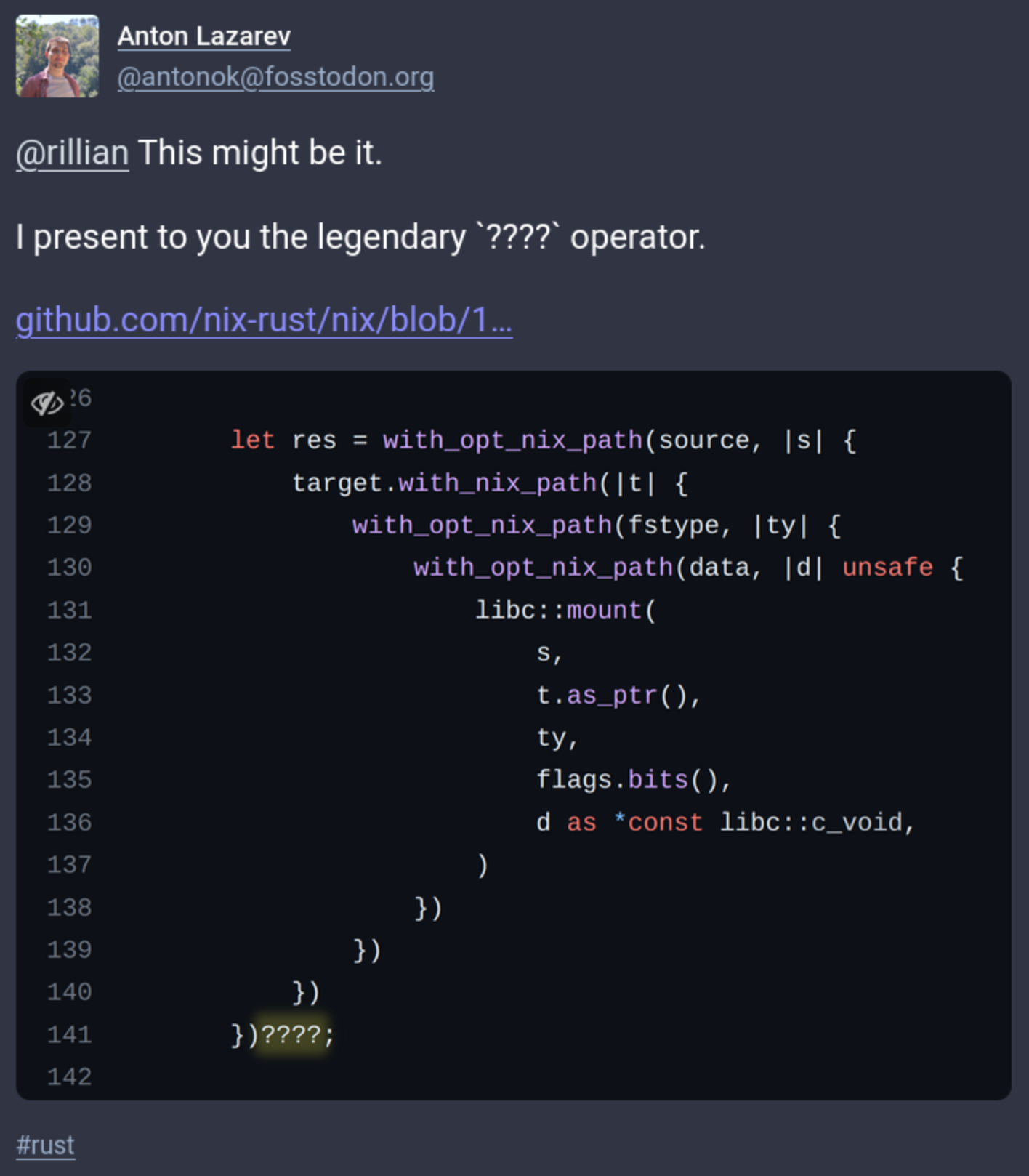this post was submitted on 27 Sep 2023
189 points (97.5% liked)
Rust
5974 readers
97 users here now
Welcome to the Rust community! This is a place to discuss about the Rust programming language.
Wormhole
Credits
- The icon is a modified version of the official rust logo (changing the colors to a gradient and black background)
founded 1 year ago
MODERATORS
you are viewing a single comment's thread
view the rest of the comments
view the rest of the comments

While funny, this also highlights part of why I like rust's error handling story so much: You can really just read the happy path and understand what's going on. The error handling takes up minimal space, yet with one glance you can see that errors are all handled (bubbled up in this case). The usual caveats still apply, of course ;)
I'm writing my Rust wrong... I have match statements everywhere to the degree that it's cluttering up everything.
If all you do in the
Err(e) => ...match arm is returning the error, then you absolutely should use the?operator instead.If the match arm also converts the error type into another error type, implement the
Fromtrait for the conversion, then you can use?as well.If you want to add more information to the error, you can use
.map_err(...)?. Or, if you're using theanyhowcrate,.with_context(...)?.You can also do
map_err, which is a bit cleaner while keeping the mapping obvious. If you really need to do some logic on error, extracting that to the calling function is often better.